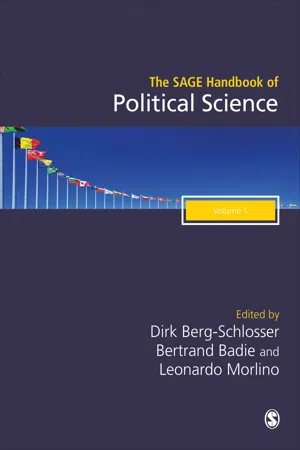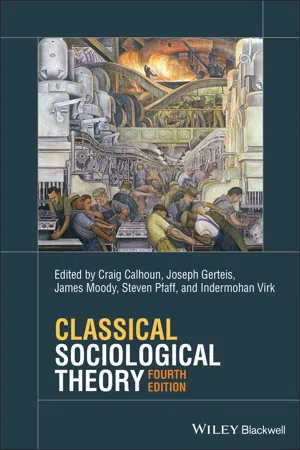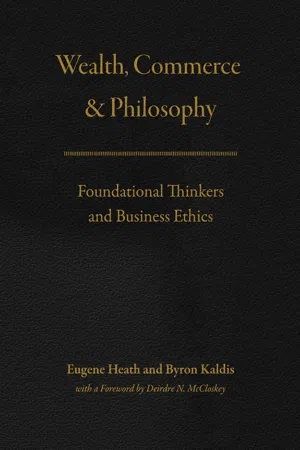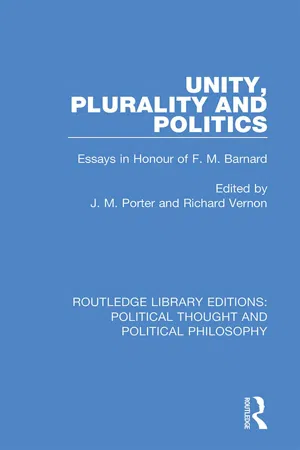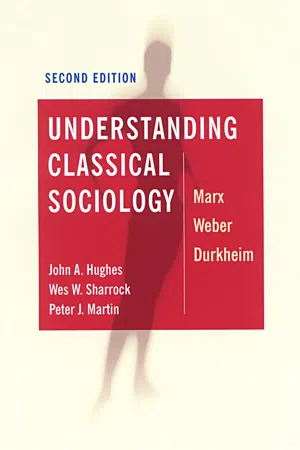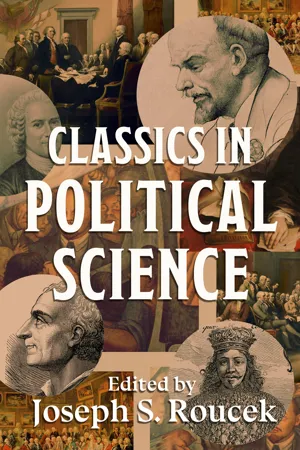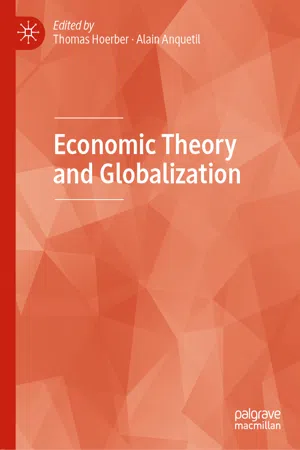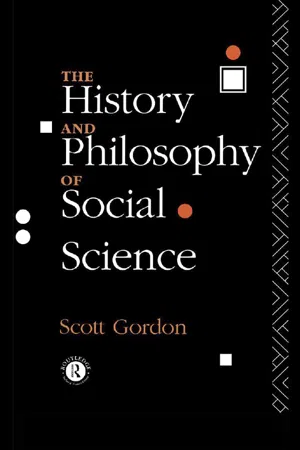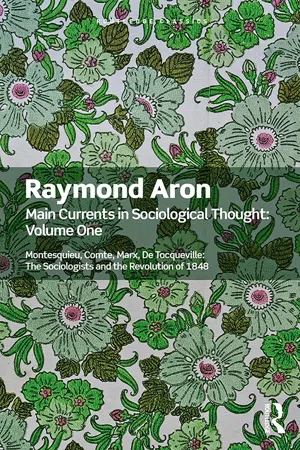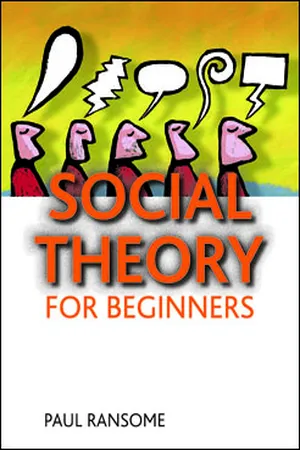History
Karl Marx and Communism
Karl Marx was a German philosopher and economist who developed the theory of communism, which advocates for a classless society where the means of production are owned collectively. He believed that capitalism would eventually lead to its own downfall and be replaced by communism. Marx's ideas heavily influenced the development of socialist and communist movements around the world.
Written by Perlego with AI-assistance
Related key terms
10 Key excerpts on "Karl Marx and Communism"
- eBook - ePub
- Dirk Berg-Schlosser, Bertrand Badie, Leonardo Morlino, Dirk Berg-Schlosser, Bertrand Badie, Leonardo Morlino(Authors)
- 2020(Publication Date)
- SAGE Publications Ltd(Publisher)
7 Marx and Marxism in Politics Dingping GuoIntroduction
Marxism has been defined and studied as a political theory, political ideology and political movement. In political studies, Marxism refers to a specific school of social and political theory about human life, historical development, capitalist crisis and communist revolution, which was developed by Karl Marx and Friedrich Engels during the mid-to-late 19th century, and subsequently elaborated on by their disciples from various backgrounds all over the world. Although there are inconsistencies and contradictions in Marx's theory during the different periods of its development, and there are considerable debates and disputes over its nature and structure, some basic consensus can be reached based on an analysis of Marx's works and the studies on the subsequent evolution of Marxist theory. Marxism is not only one of the most important social and political schools of thought, but also the guiding ideology in the communist revolution and the socialist construction of many countries worldwide.Capitalist Development and the Birth of Marxism
Karl Marx, one of the most famous and influential theorists of the modern historical age from whom the socialist or communist movements have derived their ideas, was not only a political thinker but also social philosopher and economist whose research ranged widely over many fields. Marx has had a profound impact on the thoughts and actions of people in many countries since the mid 19th century, and in the 21st century he is still regarded as the greatest instructor by the political left, including the adherents of communist parties, and is derided as a source of political and social chaos by the political right. The ideas and programs developed by Marx and Engels have been generally called Marxism.Born in Trier, German Rhineland, into a Jewish family on May 5, 1818, Karl Marx received a good education and displayed great potential as an outstanding student. During his student days at the universities of Bonn and Berlin, Marx studied law and the history of philosophy, took a strong interest in the works of Georg Wilhelm Friedrich Hegel and joined a student/professor group called the ‘Young Hegelians'. Marx submitted his doctoral dissertation at the University of Jena in 1840 and received a doctoral degree the following year. This dissertation is entitled ‘The Difference between the Democritean and Epicurean Philosophy of Nature’ and can be regarded as the starting point of his transition from idealism to materialism (Jessop, 1999: 98). After his initial failure to establish an academic career, his liberal political views led him to find employment as an editor of a radical newspaper in Cologne, Rheinische Zeitung - eBook - ePub
- Craig Calhoun, Joseph Gerteis, James Moody, Steven Pfaff, Indermohan Virk(Authors)
- 2022(Publication Date)
- Wiley-Blackwell(Publisher)
Although there are good reasons to doubt his gifts as a prophet, Marx remains an intellectual giant because he was the first social thinker to develop a theory of social inequality over the long run of history, ranging from the earliest advent of agriculture, through the evolution of pre-industrial states (he called this “feudalism”), to industrial times and beyond. At the heart of his analysis was the exploitation of labor, the inevitable clash of social classes, and the ongoing concentration of productive means. Brilliant and menacing, Marx’s thought is a thoroughgoing indictment of capitalist modernity that continues to attract adherents.Marx is notorious for his call for a worldwide revolution to overthrow capitalism. In fact, Marx provided inspiration for a host of revolutionary movements in his own day, as well as the subsequent establishment of Communist regimes in the Soviet Union, China, Cuba, Cambodia, and elsewhere. Over the nearly two centuries since Marx began his work, workers, women, colonized peoples, and other marginalized and dispossessed groups have embraced Marxism as a conceptual weapon in their struggles. Even so, Marxism has often fostered dogmatism, violence, and a dangerous strain of utopianism in which radical ends justified any brutal means. In its darkest moments, Marxism justified the reign of tyrants and the murder, incarceration, and enslavement of people deemed obstacles to the final triumph of the revolution.However complicated the history of Marxist movements, Marx’s real importance for sociology lies elsewhere. What makes Marx such a central figure in classical sociology is his conceptualization of capitalism, which brought a theoretical focus to empirical social analysis in different times and places.Marx’s Life and Intellectual Outlook
Marx was born in Trier, a border town in western Germany. His family was prosperous and respectable. Marx attended university to study law. However, he soon shifted his interests toward philosophy, especially that of Hegel, and he earned a doctorate at the University of Jena. Blocked from an academic career because of his politics, Marx became a political journalist and member of radical philosophical circles. - eBook - ePub
Wealth, Commerce, and Philosophy
Foundational Thinkers and Business Ethics
- Eugene Heath, Byron Kaldis, Eugene Heath, Byron Kaldis(Authors)
- 2017(Publication Date)
- University of Chicago Press(Publisher)
Chapter 16Karl Marx on History, Capitalism, and . . . Business Ethics?
William H. ShawKarl Marx was a thinker of world-historical significance. His ideas changed the course of the twentieth century, and his deep, fecund, and multidimensional intellectual legacy had a profound impact on subsequent thinkers in a variety of fields, the importance of which it is difficult to exaggerate.1 Marx himself thought that his two major theoretical achievements were his materialist conception of history, known as “historical materialism,” and his detailed analysis of the capitalist economic system, which purports to reveal capitalism’s inherent developmental tendencies and the precise nature of exploitation that occurs under that system.2 In the first two sections of this essay, I outline these fundamental aspects of Marx’s thought. Against that backdrop, I tease out his thinking about ethics in general and the ethics of commerce and business in particular, exploring its implications for normative business ethics. Although Marx poses a challenge to the whole enterprise of business ethics, he may also inspire some fresh approaches to it.Marx’s Materialist Theory of History
As Friedrich Engels summarizes it, the materialist conception of history that he and Marx sharedseeks the ultimate cause and the great moving power of all important historic events in the economic development of society, in the changes in the modes of production and exchange, in the consequent division of society into distinct classes, and in the struggle of those classes against one another.3Marx himself provides a more detailed, but still brief, general statement of his view of history in the Preface to his 1859 work, A Contribution to the Critique of Political Economy.4 - eBook - ePub
Unity, Plurality and Politics
Essays in Honour of F. M. Barnard
- J. M. Porter, Richard Vernon(Authors)
- 2019(Publication Date)
- Routledge(Publisher)
6 THE RISE AND FALL OF MARXIST IDEOLOGY IN COMMUNIST COUNTRIES* Eugene KamenkaIntroduction
Karl Marx was the greatest thinker in the history of socialism. He gave socialism its intellectual respectability and its theoretical self-confidence. From divers sources and materials, from phrases in radical pamphlets and slogans at socialist meetings, from German philosophy, French politics and English economics, he created a socialist system of thought, a total socialist critique of modern society. He refined and systematised the language of socialism; he explained and expounded the place of socialism in history; he reconciled, or seemed to reconcile, its conflicting hopes and theoretical contradictions. His work – itself a process of self-clarification – set the seal upon the transition from the romantic revolutionism of the 1840s to the working-class movement that spanned the 1860s to 1880s. It fused into a single body of connected doctrine moral criticism and economic analysis, revolutionary activism and social science, the longing for community and the acceptance of economic rationality and industrial progress. It clothed the interests and demands of a still largely nascent and despised working class in the dignity of a categorical imperative pronounced by history itself. It laid the foundations for a critical account of the birth and development of modern society. For Marx correctly recognised the world-historical importance of the French Revolution and the Industrial Revolution. He saw that, in Europe at least, they were part and parcel of one development. He realised that they had inaugurated a new era in history, an era in which civil society – the world of industry and trade – had moved to the centre of the stage and was being driven by violent internal compulsions to ever more rapid change and expansion. Marx recognised more clearly than others the birth of modern society and the tensions and conflicts involved in its internal dynamic. Since the Napoleonic wars set the seal of destruction upon the old order and the old regime in Europe, we have been living through a continuing crisis which has spread outward from Europe until it engulfs the world. Marx was the first and in many respects greatest student of that crisis. His predictions have proved at least partly false; his presentation of the issues may now seem far too simple; but he saw where the issues lay, not only of his time but of ours. The study of modern society still cannot bypass the work of Karl Marx.1 - eBook - ePub
Understanding Classical Sociology
Marx, Weber, Durkheim
- John A Hughes, Wes Sharrock, Peter J Martin(Authors)
- 2003(Publication Date)
- SAGE Publications Ltd(Publisher)
Karl Marx
2
BEGINNING CHAPTER TWO
It is difficult to overestimate Marx as a social thinker and one who not only has had a major impact on the discipline of sociology but upon the world beyond. In this chapter we will present the following aspects of his thought and life:- A brief biography of his life and eventual exile in London.
- His intellectual beginnings and his critique of Hegel’s idealism. This will involve a fairly detailed discussion of Hegel’s ideas since, although Marx rejected Hegel’s idealism in favour of his own historical materialism, Hegelian themes and ideas remained strong in Marx’s thought throughout his life.
- The development of Marx’s materialism and his critique of the political economy of the day.
- The summary statement of his major ideas as set out in the manifesto written with Engels: The Communist Manifesto, presents his materialist conception of history which his subsequent works flesh out in much more detail as his developing theory of society and social change.
- Marx’s thought was dynamic and rarely just concerned with social and philosophical analysis; his objective was to change the world. Further, his work left a huge legacy to be debated over, interpreted and revised by supporters and opponents alike. Some of the key issues of interpretation – such as ‘alienation’, the base-superstructure distinction, ideology, the theory of surplus value, and changes in the nature of capitalism – are discussed.
Unlike Durkheim and Weber, Marx was not a university professor. He was a revolutionary as well as a notable thinker, his life’s work dedicated to the overthrow of the capitalist order, which he saw as responsible for the degradation and the enslavement of the vast mass of its population. He spent most of his productive adult life as a refugee from his native Germany, living for more than thirty years in impoverished exile in London. His radical ideals were pursued at great cost to himself, and to his family, and for long periods he was dependent on gifts from friends, most notably Friedrich Engels, and small earnings from journalism. The whole point of his work was to provide an understanding of the nature of capitalism in order that people could regain control of their lives. ‘The philosophers’, he wrote in 1845 when still in his twenties, ‘have only interpreted the world, in various ways; the point is to change it’ (Marx, 1845: 158). - eBook - ePub
- Joseph S. Roucek(Author)
- 2023(Publication Date)
- Philosophical Library/Open Road(Publisher)
KARL MARX
(1818-1883)As a philosopher and ideologist, has not only influenced, as has no other man in contemporary history, subsequent political and social changes, but his teachings, in contrast to those of previous philosophers, have directly affected the minds of the working peoples throughout the world (Critique of Political Economics, 1859; Das Kapital, 1867, 1885, 1894; The Communist Manifesto, in collaboration with Friedrich Engels, 1848). Born in Germany, the son of a Jewish lawyer, into a family that was, in Lenin’s words, “well-to-do, cultured, but not revolutionary,” he studied law, history and philosophy at Bonn and Berlin, became a doctor of philosophy in 1841, and married happily in 1842. In 1847 he and his friend Engels reorganized a secret propaganda society, the Communist League, in London, at the request of which they drew up the famed Communist Manifesto, still the theoretical basis of Communism today. In 1849, having been expelled from Paris, Belgium and Prussia, Marx went to England, where he eked out a frugal existence in Dean Street, Soho, and busied himself in writing books on revolution in the British Museum. (The foundation for Marx’s later Das Kapital was laid by Engels in 1845 with the publication of his Condition of the Working Classes in England. ) His wife, Jenny von Westfalen, remained for nearly forty years his faithful partner, sharing with him a life of incredible poverty, privation and misfortune; of their six children, only three survived, and of these, two committed suicide in later life. Unquestionably, these years of extreme hardship influenced Marx’s views and account for much of the rancor and bitterness in his ideology; only frequent financial help from Engels saved him from actual starvation. (His only earned income was a guinea a week, received from the New York Tribune for a letter on European affairs, and intermittent pay for jobs of hack writing). Das Kapital - eBook - ePub
- Thomas Hoerber, Alain Anquetil, Thomas Hoerber, Alain Anquetil(Authors)
- 2019(Publication Date)
- Palgrave Macmillan(Publisher)
1848 ]: 519, all capital letters in original).Revolution, however, is not a simple process according to Marx. The transition away from a capitalist society and towards the communism that Marx outlined would be a long process.[People] make their own history, but they do not make it just as they please; they do not make it under circumstances chosen by themselves, but under circumstances directly encountered, given and transmitted from the past. The tradition of all the dead generations weighs like a nightmare on the brain of the living. (Marx 1979 [1852 ]: 103)The first step in the transition to communism is dependent on the working classes gaining political power (Marx 1985 [1864 ]: 12). If the working classes are successful, the aim of the communist society is to eliminate private property and establish a society where labour is no longer isolated alienated labour, but a communal activity. As the society becomes more democratic and egalitarian, the need for political parties and the exertion of political power by one group over another will disappear over time (Marx and Engels 1976 [1848 ]: 505).However, communism is not simply the elimination of private property , but the realization of species being. If private property is eliminated, but the relationships of society change only in that the community is now the possessor of the private property, communism would be realized in crude form. If workers still work for wages, but are paid by the community, it would replicate the relations of private property (Marx 1975 [1844 ]: 295). To be fully developed communism , people must be able to achieve their species being.In a higher phase of communist society, after the enslaving subordination of the individual to the division of labour, and thereby also the antithesis between mental and physical labour, has vanished; after labour has become not only a means of life but life’s prime want; after the productive forces have also increased with the all-round development of the individual, and the springs of common wealth flow more abundantly–only then can the narrow horizon of bourgeois right be crossed in its entirety and society inscribe on its banners: From each according to [one’s] abilities, to each according to [one’s] needs! (Marx 1989 [1875 - eBook - ePub
- H. Scott Gordon(Author)
- 2002(Publication Date)
- Routledge(Publisher)
Karl Marx: His Life and Environment, 1959, p. 110). But he himself never provided such a programme.From the materials available, one can say that Marx and Engels envisaged communist society as having a technologically advanced system of production which would provide a high material standard of living, with a working day shortened to allow much free time for other activities. They did not have in mind the restoration of a simpler, predominantly agrarian, economy. They rejected totally the idea that man’s freedom from economic necessity is to be found in diminishing his wants rather than increasing his productive powers, as was argued by Proudhon and Bakunin. They rejected also the view held by orthodox economists since Adam Smith that division of labour was essential to high productivity. It may have contributed to productivity in an earlier period but was no longer necessary in an era of high technology and great capital accumulation. Under capitalism the division of labour had become the basis of class division, the enslavement of the worker to the owners of capital, and the degradation of creative work into meaningless toil. Under communism there would no longer be division of labour in the sense of personal specialization, and work would become man’s way of satisfying the creative urge which is the most fundamental constituent of human nature. The capitalist system of commodity exchange, using money as its medium, would disappear, since there would no longer be ‘commodities’ identifiable as the products of specific labour. All such labour would be undifferentiated parts of ‘social labour’ and all specific goods would be part of a common pool of social production. In the initial stages of the transformation after the revolution, workers would deliver their production to this common pool and receive in return certificates denominating the amount of labour it represented; these certificates would then permit each worker to withdraw an equivalent amount of goods from the common pool for his personal use. Under full communism this system of distribution would no longer be necessary, being replaced by the general rule: ‘From each according to his ability, to each according to his needs’. - eBook - ePub
Main Currents in Sociological Thought: Volume One
Montesquieu, Comte, Marx, De Tocqueville: The Sociologists and the Revolution of 1848
- Raymond Aron(Author)
- 2018(Publication Date)
- Routledge(Publisher)
4Karl Marx
I
It is really no more difficult to present Marx’s leading ideas than those of Montesquieu or Comte; if only there were not so many millions of Marxists, there would be no question at all about what Marx’s leading ideas are or what is central to his thought.Marx was, first and foremost, the sociologist and economist of the capitalist regime. He had a certain conception of that regime, of the destiny it imposed upon men, and of the evolution it would undergo. As sociologist-economist of the regime he called capitalist, he had no precise image of what the socialist regime would be, and he repeatedly said that man cannot know the future in advance. It is of no great interest, therefore, to wonder whether, if Marx were alive, he would be a Stalinist, a Trotskyite, a Khrushchevian, a Maoist, or something else. Marx had the fortune, or misfortune, to live a century ago. He gave no answers to the questions we are asking today. We can give those answers for him, but they are our answers and not his. To wonder what Marx would have thought, had he lived in another century, is like wondering what another Marx would have thought, instead of the real Marx. An answer is possible, but it is problematical and of questionable interest.Nevertheless, it is certainly a complicating fact that today almost a billion human beings are taught a doctrine which, rightly or wrongly, is labeled Marxist. A certain interpretation of Marx’s doctrine has become the official ideology first of the Russian state, next of the states of Eastern Europe, and finally of the Chinese state. This official doctrine claims to give the true interpretation of Marx’s thought. It is enough for a sociologist or, more modestly, a teacher to present a certain interpretation of Marx’s thought for him to become, in the eyes of supporters of the official doctrine, a mouthpiece of the bourgeoisie, of capitalism, and of imperialism. - eBook - ePub
- Ransome, Paul(Authors)
- 2010(Publication Date)
- Policy Press(Publisher)
Let the ruling classes tremble at a Communist revolution. The proletarians have nothing to lose but their chains. They have a world to win’ (Marx and Engels, 1952 [1848], p 96). Equally certain, however, is the fact that the validity of Marx and Engel’s theory would have been considerably strengthened if a revolution had occurred in modern society during the latter part of the 19th century. The fact that this has not yet happened rather suggests either that the theory was not complete or that they had a poor sense of timing. As we shall see in later chapters, these issues are still hotly debated in social theory. Capitalist exploitation and Marx’s ‘labour theory of value’ We have now arrived at the fourth main concept in Marx’s social theory we are discussing in this chapter. Combining his materialist view of historical development with his philosophical concept of alienation, Marx spent the remaining and longest part of his career developing a very detailed analysis of how the capitalist labour process is able to exploit workers in the way it does. The major publications here are A Contribution to the Critique of Political Economy (1971 [1859]) and Capital (volume 1, 1954 [1867]). A key theme in this analysis was that capitalism was alienating and conflict-ridden because of the way it exploited the working class through work. Within the cool, hard, calculating mentality of the capitalist (his instrumental rationality, as Weber puts it), labour is no longer treated subjectively as the expression of creativity, but objectively as just another cost of production. The many qualitative dimensions of work are disregarded and replaced with a single quantitative dimension, which is how much product they can produce in a given time and what the minimum amount of wages is that they have to be paid for doing it: It goes without saying that political economy regards the proletarian, i.e. he who lives from labour alone as nothing more than a worker
Index pages curate the most relevant extracts from our library of academic textbooks. They’ve been created using an in-house natural language model (NLM), each adding context and meaning to key research topics.
